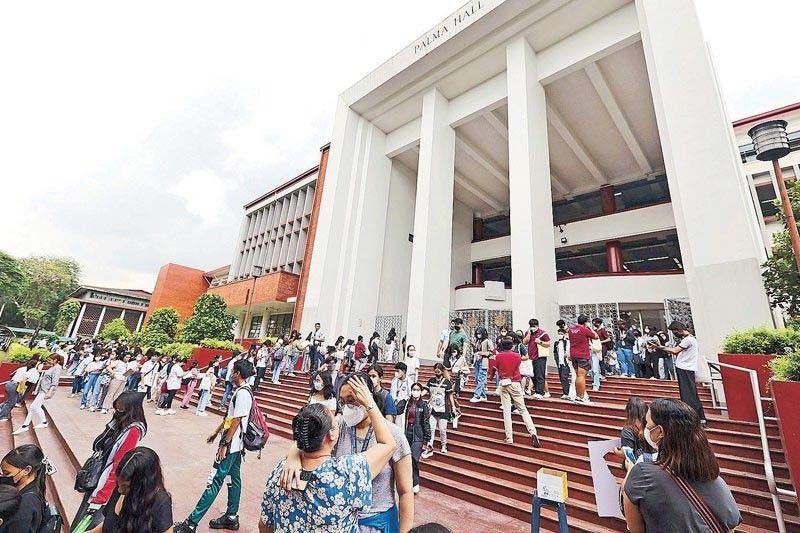Solution to funding deficiency of free higher education part of 2024 budget

MANILA, Philippines — Lawmakers included in the 2024 budget a special provision that covers the projected billions worth of funding deficiencies in the free higher education program of state universities and colleges (SUCs) this year.
Senate basic education panel chairperson Sherwin Gatchalian said that the 2024 General Appropriations Act (GAA) has allowed the use of the excess funds of the Higher Education Development Fund (HEDF) to pay for the possible funding deficiencies caused by SUCs accepting more enrollees than what their budget allows for.
Senators in 2023 raised the issue of the billions in budget deficiencies that happen when SUCs accept more enrollees than what their funding for free higher education can cover. During budget deliberations late last year, Sen. Chiz Escudero said that the projected deficit for 2023 was at least P4 billion.
In a press release on Wednesday, Gatchalian said that the 2024 allocation will allow SUCs to draw from the unused balance of the HEDF to fund the difference between their allocated budget and the actual number of enrollees and fees approved by the SUCs' boards of regents.
Gatchalian said the projected deficiencies in free higher education would amount to P4.1 billion in 2024. Citing figures from the Philippine Association of State Universities and Colleges (PASUC), this means over 1.8 million students will avail of free higher education in 2024.
The senator said that he proposed the use of the HEDF to plug the free higher education funding gap as around P10.167 billion is parked in the accumulated net balance of the fund as of May 2022.
“This is enough to cover the funding gap for free higher education in SUCs for 2024. The HEDF, however, will only cover free higher education deficiencies for fiscal year 2024,” he said.
The HEDF is a fund established in the under the Commission on Higher Education (CHED) Charter, Republic Act 77221. It is intended to fund projects that aim to "strengthen higher education" and has been used to bankroll education programs that do not have allocations in the GAA.
More college and university students have been flocking to SUCs over private schools since 2017 to avail of tuition-free schooling, according to CHED.
According to Philippine Statistics Authority data, more Filipinos have enjoyed improved access to tertiary studies in the span of two decades. Data shows at least 13% of Filipinos have college education as their highest educational background in 2020 -- higher than the 10% in 2010 and 4% in 2000.
SUCs will get around a total of P128 billion next year, according to the 2024 General Appropriations Act (GAA), higher than the P107 billion it received in 2023 and the P100 billion originally allocated for SUCs in the proposed spending plan for 2024.
- Latest
- Trending
































